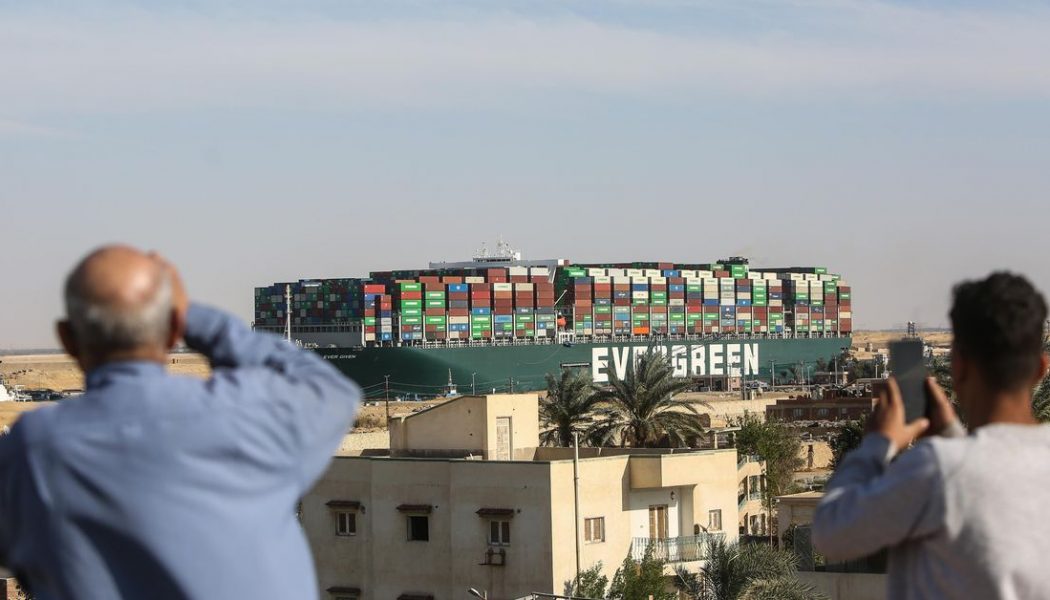
The boat is unstuck. If you’ve been following the news, you know exactly the boat and exactly how stuck it was: the Evergreen Marine Corporation’s Ever Given cargo ship has been stuck across the Suez Canal for the last six days, disrupting billions of dollars in global trade.
Nevertheless, it’s given people something to laugh about because it seems like a mostly harmless thing; according to Bloomberg, the big boat was blocking $9.6 billion in global shipping traffic a day, but those numbers are abstract enough that many haven’t felt an impact in their daily lives. You might not have been able to get your things on time, but at least you knew why. A big boat was stuck. The other boats had to traverse the historical route around the horn of Africa.
I am not a nautical man, though, like many other people, I am still in love with the sea. My job is pretty simple: I wake up, and I spend my day writing. (Emails and tweets both count.) I live in New York, a city on the water, but I hardly feel the impacts of living on the fringes of maritime culture unless I’m at one of the parks that overlook the harbors or there’s a disaster, like Hurricane Sandy.
There is an undeniable mystique to water. Even if you don’t believe me, your body does: every vertebrate mammal has what’s known as the mammalian diving reflex, which is a suite of physiological changes that happen to your body when your face is submerged and your nostrils fill with water. Your heart rate slows down, for one, and your body conserves its oxygen. You can’t help it; it just happens.
The ocean is vast, powerful, and unknowable. It’s nearly too big to comprehend and perhaps more mysterious than space itself. And yet, we float boats on it anyway. They get where they’re going, mostly, which seems to me a wonderfully human feat. It feels like hubris to deploy a ship like the Ever Given, which is 1,312 feet and 2 inches long, and maybe it is. (The Ever Given was launched in 2018 and wrecked a ferry in Germany a year later, which makes the time between then and the Suez incident the longest it’s gone without something bad happening in its history.)
The boat is unstuck. I am happy for the people who made it happen because they must be feeling pretty good right now. I’m also happy for the boat because it was built for sailing and being stuck longways in a canal is not traversing the high seas. I’m happy that I got to see a big boat get stuck like a child’s toy across one of the most important trade routes on the planet. The Suez Canal opened for business in 1869, a year before the mammalian diving reflex was described in scientific literature by Paul Bert. (This was the second time; Edmund Goodwyn, the first guy, didn’t get credit for his 1786 discovery.)
The ocean was the first frontier, which is why we call space the final frontier. They’re more similar than they are different: unfathomably big and inimical to human life without some sort of supra-human contraption (a boat). There’s a reason why all of the American space shuttles were named after ships. They’re both ways to get to other worlds.









